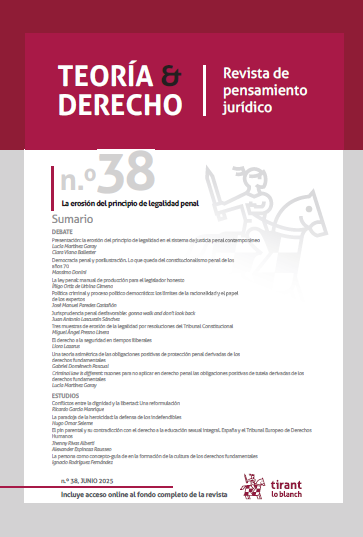Criminal law: a production manual for the honest legislator
DOI:
https://doi.org/10.36151/TD.2025.118Keywords:
Regulation, Legisprudence, legislative procedure, parliamentary constitutional appeal, amendment homogeneityAbstract
A thick description of the passing of LO 14/2022 shows two phenomena that have been occurring in recent years in criminal matters: firstly, the (successful) attempt to circumvent the rules on the preparation of government-proposed bills through the use of congress-proposed bills; in this regard, the evolution from the majority use of government-proposed bills to that of congress-proposed is empirically shown. Secondly, the crass violation of the rules on legislative procedure in- and by Congress itself, as well as the very limited capacity of the Constitutional Court to prevent it, both for reasons of institutional design (limitations intrinsic to the parliamentary constitutional appeal) and slowness in response (more than 75 % of the resolutions arrive in another legislature). An analysis is then conducted of the Constitutional Court doctrines on the requirements of parliamentary protection and the supposed need for homogeneity of amendments with the amended text, which is shown to have not really been required since the promising Constitutional Court Judgment 119/2011.
Downloads
Downloads
Published
Issue
Section
License
Copyright (c) 2025 Teoría & Derecho. Revista de pensamiento jurídico

This work is licensed under a Creative Commons Attribution-NonCommercial-NoDerivatives 4.0 International License.





















